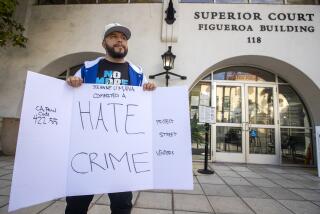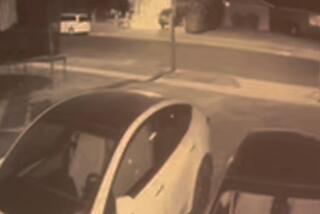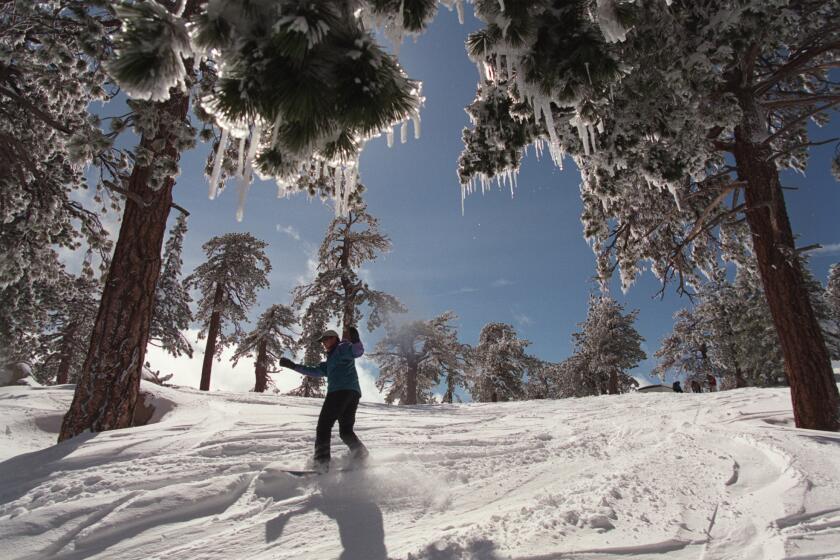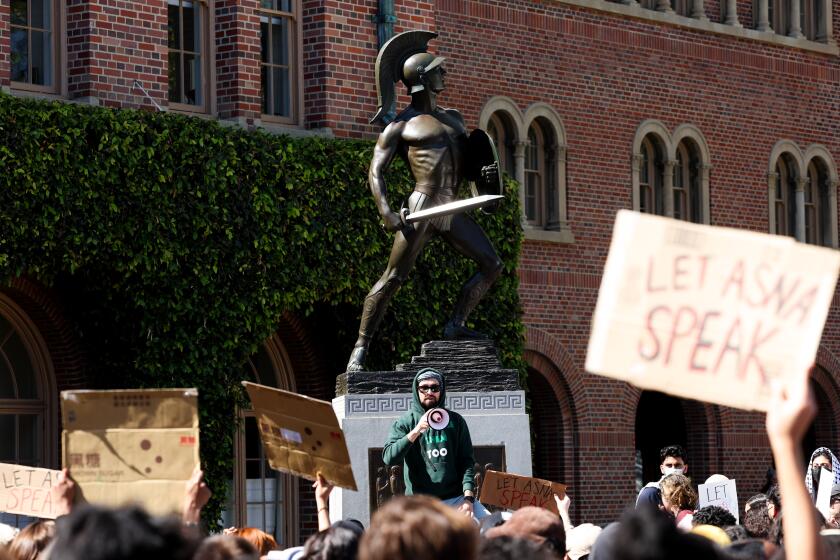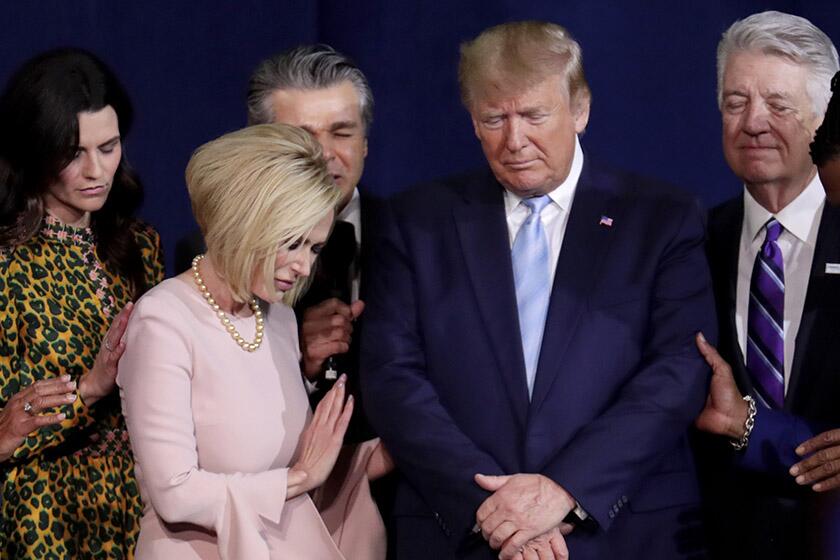Opinion: Burning a flag is a protest, not arson
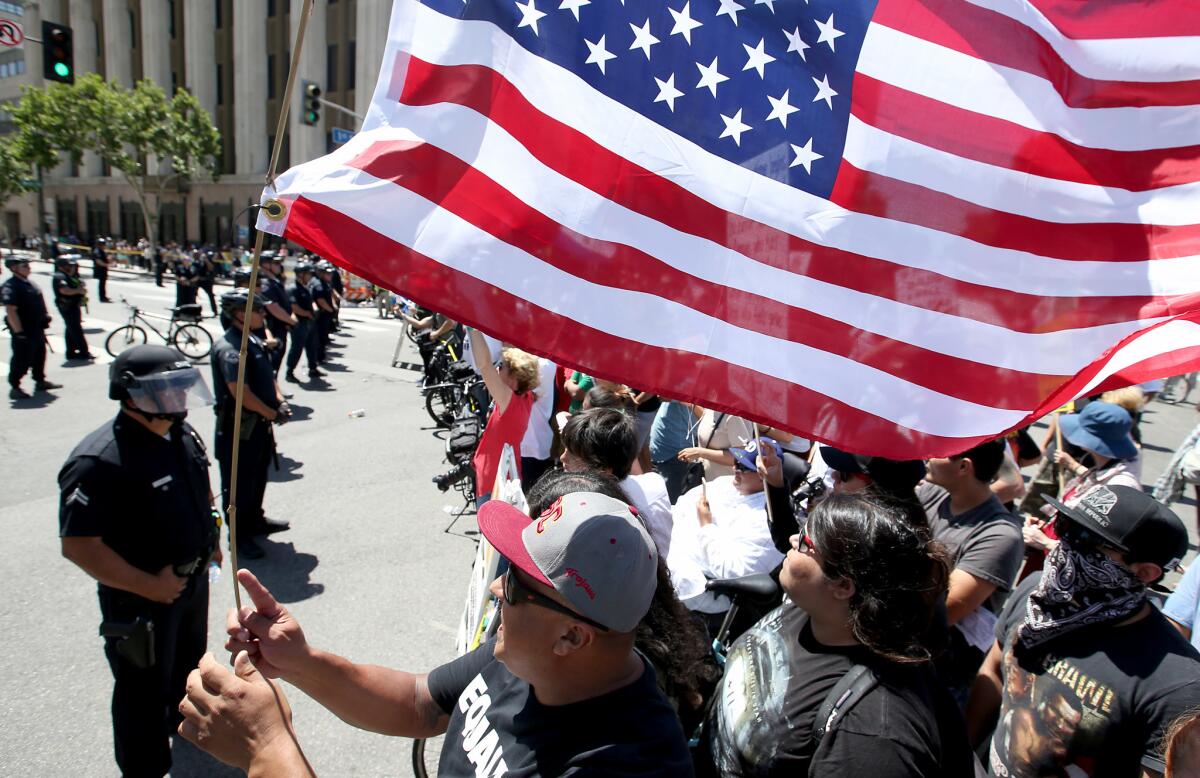
During the May Day marches in downtown Los Angeles on Monday, a man wearing a red T-shirt and a black mask dangled a small U.S. flag from his left hand and, in front of rolling video cameras, ignited it. It wasn’t a very big flag, maybe twice the size of a folder, so it didn’t make much of a fire.
But as the flag burned, LAPD officers swept in, handcuffed the protester — the smoldering flag falling to the sidewalk — and led him away to a patrol car under arrest for suspicion of arson, it was reported at the time.
Los Angeles police said Tuesday morning that the protester ultimately wasn’t charged, and he was released. That no charge was filed is good, but the harm had already been done. The arrest itself should worry defenders of free speech.
The Supreme Court ruled more than a quarter-century ago that burning the American flag as an act of protest is protected speech under the 1st Amendment, and it found laws specifically banning the burning of the flag to be unconstitutional. Despite that long history, Los Angeles police decided to arrest the protester anyway. On suspicion of arson, a charge usually connected with the intentional torching of a building, car or other sizable and valuable object.
To perceive the burning of a flag as an act of arson is, to put it generously, a cynical use of the laws and police power.
Watching the video of the protest and arrest makes it clear the man was engaged in lawful protest. There was no imminent physical risk to anyone — except maybe the protester’s fingers as the flames crawled up the flag. Yet by arresting him, the police ended his lawful expression. They compounded the affront by removing him from the protest and placing him in the back of a patrol car.
This sort of police overreaction isn’t unique to Los Angeles. People routinely get arrested at protests around the country, hauled off and then later released without charge. But the violation of free-speech rights occurs when the person is arrested, ending his or her involvement in the protest — protected political speech.
Granted, some protests veer into violence, and crimes are committed. That happened during the demonstrations in Washington, D.C., over President Trump’s inauguration. More than 200 people have been charged in connection with a torched limousine, broken windows and assaults on police, and such accusations need to be addressed through the courts to insure that criminal actors are held accountable. But the courts also must make sure that those merely dissenting are not punished for mounting lawful protests.
And police overseers also must make certain that officers accurately assess and respond to what’s before them and not do wholesale indiscriminate sweeps of protesters, which occurred at the inauguration protests when seven journalists also were arrested. While the charges against the journalists were dropped, the arrests themselves removed the journalists from the scene and precluded them from doing their jobs.
That no charge was filed is good, but the harm had already been done. The arrest should worry defenders of free speech.
Burning an American flag may be offensive to some, but the 1st Amendment is worthless if it doesn’t also protect speech we don’t like. Activists on the left and the right have over the years used the “heckler’s veto” — loud and occasionally violent protests to shut down opposing views. That’s a mob in action, and it’s reprehensible (the recent brouhaha over canceling, then rescheduling, an appearance by conservative gadfly Ann Coulter at UC Berkeley is a case in point).
But in arresting the flag-burner Monday, it was the police — the enforcement arm of the government — that shut off political speech, and dissent. That is indefensible, and intolerable, and the Los Angeles Police Commission would be wise to review the incident with an eye toward ensuring that keeping the peace does not involve stifling free speech.
Follow my posts and re-tweets at @smartelle on Twitter
More to Read
A cure for the common opinion
Get thought-provoking perspectives with our weekly newsletter.
You may occasionally receive promotional content from the Los Angeles Times.
